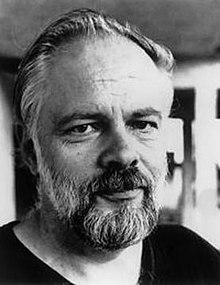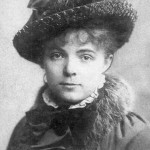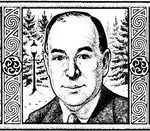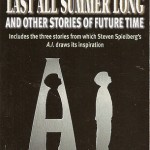In one of his essays, Joseph Brodsky, talking about Osip Mandelstam, says this about our lives:
Any poet, no matter how much he writes, expresses in his verse, physically or statistically speaking, at most one tenth of his life’s reality. The rest is normally shrouded in darkness.
Is this admirable remark what we feel about the writing of Philip K.Dick? And indeed about ourselves.
Dick certainly got frisky about this darkness. To talk about the one time we really got together – or parts of us did, at least – I got down from the shelf an armful of Dick’s novels in paperback. My thought was that I had more books written by Philip K. Dick than by any other authors bar Dickens and Thomas Hardy. And it was some years since I had read one of Dick’s books.
Many years I had spent with my friend Frank Hatherly trying to get anyone – Paramount, MGM, the BBC – to film my script version of Dick’s Martian Time Slip.
Dick could be glimpsed occasionally at SF events. But the only time we came close was in California.
I was in one of those nice bustling cities, advising and speaking for a law firm which was being sued for plagiarism regarding an SF movie. They liked me. I had white side whiskers, I had an Oxford accent. I was prepared to stand and speak.
So the lawyers established me in an expensive and comfortable hotel, where there was a Starlight Roof. One sat there in the warm dark evening, and was invited to have guests for dinner and drinks, for which the law firm would happily pay. They really did like that Oxford accent.
So one evening I invited Dick to join me. Perhaps he was lecturing at nearby Riverside University. Up we went on to the starlight roof, and ordered drinks. Below us, far below, traffic sped on its way, bearing its occupants to similar pleasures.
And I felt proud to have Phil Dick as my guest.
What we talked about that splendid evening is forgotten; perhaps I noted it down in my Journal. We certainly must have discussed Dick’s novel which had become my favourite, over which Frank Hatherley and I had wasted a year, trying to get it on the screen.
‘Martian Time-Slip’ is set on a semi-occupied Mars. The colonists live along river systems, where there are conditions of near-fertility. Arnie Kott is on his way back into a schizoid variant of a recent past.
This is how a tiny slice of the narrative goes:
And all was in shadow, cold and damp hung over everything, as if they were treading within a great tomb. The vegetation that grew thin and noxious along the surface of the rocks had a dead quality to it, as if something had poisoned it in its act of growing, Ahead lay a dead bird on the path, a rotting corpse that could have been there for weeks, he could not tell.
The web of civilization is stretched thin over utter desolation. We laughed about it, there on that pleasant starlight roof. We had both been there. We had both felt it.
Phil Dick was a prolific writer; he produced thirty novels in fifteen years. Many other American SF writers were more prolific. Poverty was one cause that made them grind out the copy.
Dick is no more. Do not enquire if his novels will survive. Mortality is as rough on novels as it is on living bodies.
Which takes us back to Brodsky’s opening remark….





